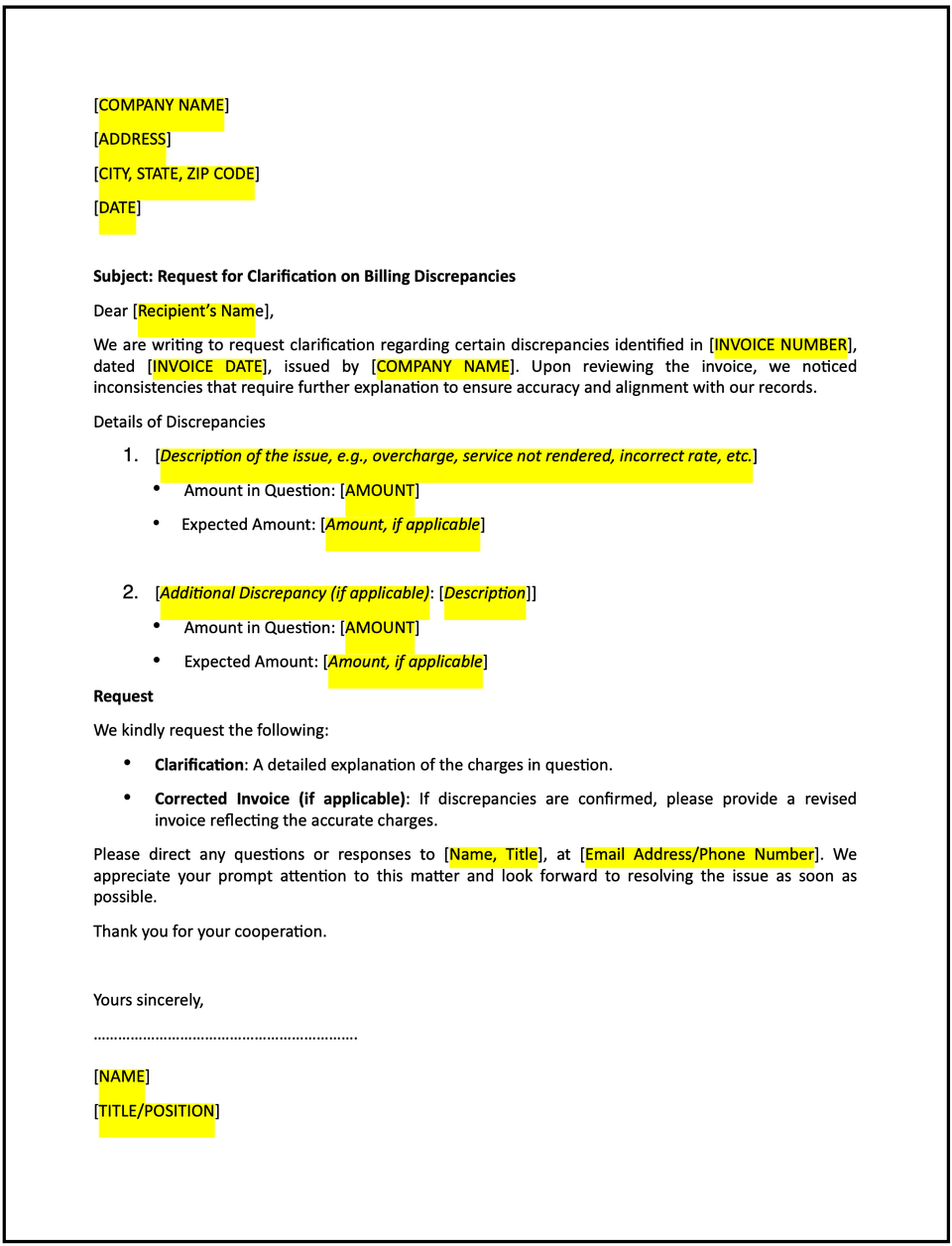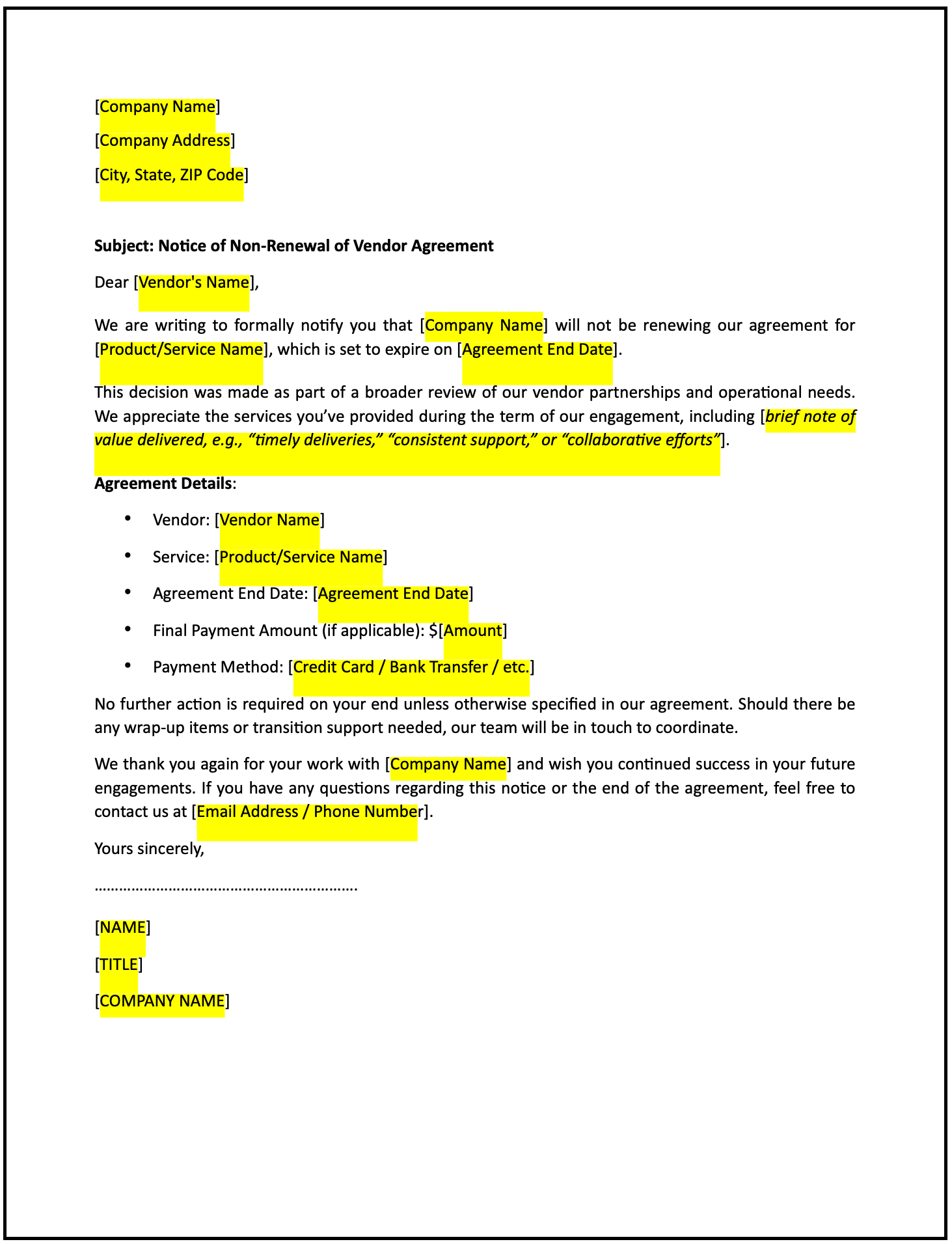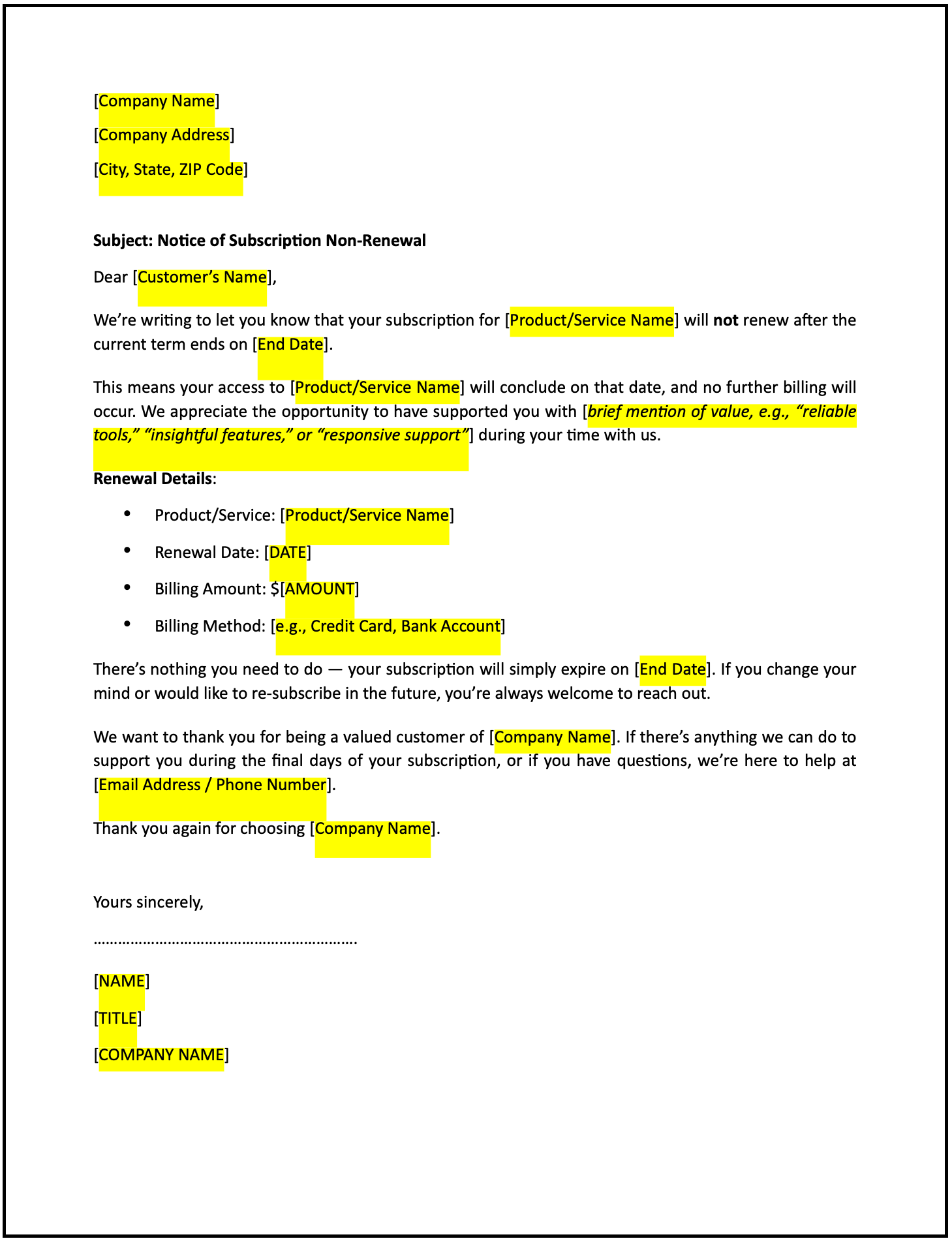Letter of request for clarification on billing discrepancies: Free template

Letter of request for clarification on billing discrepancies
A letter of request for clarification on billing discrepancies is a formal communication used to address inconsistencies or errors in a bill or invoice. This letter outlines the specific discrepancies, requests clarification or corrections, and fosters transparency while maintaining a professional tone.
How to use this letter of request for clarification on billing discrepancies
- Open with an introduction: Address the recipient respectfully and state the purpose of the letter—to seek clarification on billing discrepancies.
- Provide invoice details: Include specific information such as the invoice number, date, and amount billed to ensure clarity.
- Outline the discrepancies: Clearly describe the inconsistencies or errors, such as incorrect amounts, missing items, or unexpected charges.
- Reference supporting documents: Mention any attached documents, such as receipts, contracts, or previous invoices, that validate your claim.
- Request clarification: Politely ask the recipient to review the discrepancies and provide an explanation or correction.
- Offer cooperation: Express willingness to provide additional information or discuss the matter further if needed.
- Maintain a professional tone: Ensure the letter is respectful, concise, and focused on resolution.
- Provide contact information: Include details for the recipient to reach out for further clarification or follow-up.
Benefits of using a letter of request for clarification on billing discrepancies
This letter ensures a structured and professional way to address billing concerns while fostering transparency and resolution. Here’s how it helps:
- Promotes accuracy: Clearly identifying discrepancies ensures billing records reflect correct information.
- Reflects professionalism: A well-crafted letter demonstrates respect and attentiveness to financial agreements.
- Encourages resolution: Providing specific details facilitates prompt clarification or correction.
- Reduces misunderstandings: Clear communication minimizes potential conflicts or disputes.
- Provides documentation: A formal record of the request supports financial tracking and accountability.
Tips for writing an effective letter of request for clarification on billing discrepancies
- Be specific: Clearly describe the discrepancies and provide details to help the recipient identify the issue.
- Use professional language: Maintain a respectful and solution-focused tone to encourage cooperation.
- Highlight supporting evidence: Mention any attached documents that validate your concerns.
- Request actionable next steps: Politely ask for a review, correction, or explanation of the discrepancies.
- Keep it concise: Focus on the key points while ensuring the tone is professional and collaborative.
Frequently asked questions (FAQs)
Q: What details should I include in this letter?
A: Include the invoice number, billing date, specific discrepancies, and any supporting documentation.
Q: Should I personalize the letter?
A: Yes, addressing the recipient directly ensures clarity and demonstrates attentiveness.
Q: Who typically sends this letter?
A: Business owners, financial managers, or account representatives typically send this letter.
Q: How formal should this letter be?
A: The tone should be professional and respectful, focusing on clarity and resolution.
Q: When should this letter be sent?
A: Send the letter as soon as the discrepancies are identified to ensure timely clarification.
Q: Can this letter request a deadline for resolution?
A: Yes, setting a reasonable deadline can encourage prompt action and resolution.
Q: Is acknowledgment from the recipient required?
A: While not mandatory, requesting acknowledgment ensures the recipient is aware of the discrepancies and working on a resolution.
This article contains general legal information and does not contain legal advice. Cobrief is not a law firm or a substitute for an attorney or law firm. The law is complex and changes often. For legal advice, please ask a lawyer.


